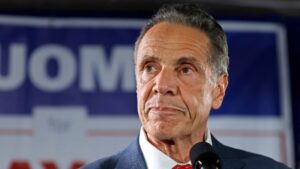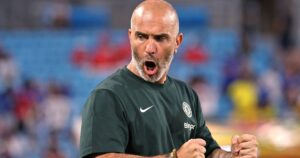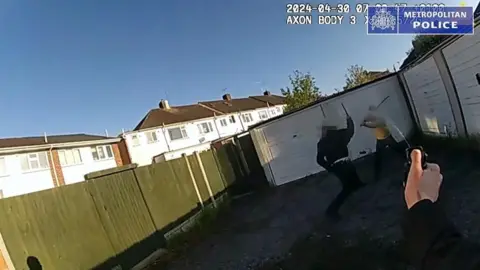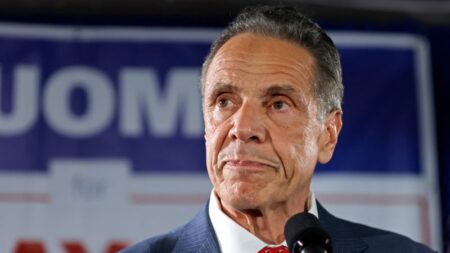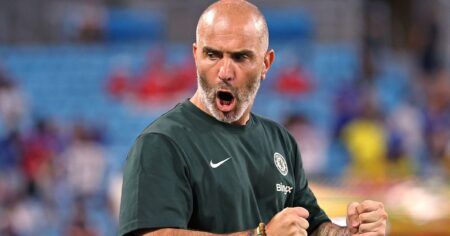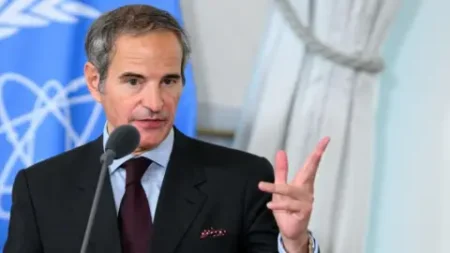In the aftermath of a brutal assault in Hainault, east London, a police officer who confronted the assailant, Marcus Monzo, has described his experience and denounced the notion of being seen as a hero. Inspector Moloy Campbell, who was on the scene when Monzo fatally attacked 14-year-old Daniel Anjorin with a samurai sword, bravely engaged the attacker despite suffering a serious injury during the altercation. His perspective on the situation has sparked conversations both about the nature of heroism and the courageous actions of police officers in dangerous situations.
Inspector Campbell recounted the harrowing encounter that took place in April 2024, during which he faced Monzo directly with little regard for his own safety. Despite sustaining a slash to his hand as he attempted to disarm the attacker, Campbell emphasized that it was not he but his team that displayed heroism that day. “It’s a natural instinct: fight or flight,” he stated, reflecting on his response during the chaotic moment. His instinct to fight—rather than flee—demonstrated a commitment to his duty as a police officer, even though he suffered injuries while trying to protect others.
The tragic sequence of events began early one morning, illustrating the random nature of violence that can disrupt a community. Monzo, before attacking Campbell, had driven his van into a pedestrian, Donato Iwule, and subsequently confronted Anjorin on the street, where he struck the boy with a 60cm sword. The suddenness and brutality of the attacks not only claimed the life of a young teenager but also shook the very foundation of the local community, leading to a deeper examination of public safety and police response. Monzo later sought refuge in a nearby home, putting more lives at risk before the police intervened.
As the situation escalated, Inspector Campbell found himself grappling not just with physical danger but with the emotional weight of such encounters. His remarks about not viewing himself as a hero were anchored in his respect for his colleagues’s actions during the crisis. He noted that police officers are trained to respond to violent situations, highlighting the discipline drilled into them that enables such swift and effective action in the face of danger. However, this training does not negate the very real risks they face each day, forcing them to balance their instinctual drive to protect with their personal safety.
The impact of the incident extended beyond the immediate victims. Henry De Los Rios Polania, who encountered Monzo in his home, shared his experiences of that night and how it fundamentally changed his life. The bravery he exhibited in protecting his wife and young daughter from Monzo’s attack led him to receive multiple surgeries and a long recovery process. Reflecting on the ordeal, De Los Rios Polania voiced his recognition of the real heroes being the police and the healthcare workers who saved his life after the attack.
The discussion surrounding heroism in the context of public service has been reignited by these events. In an age where society often labels individuals as heroes in sensational terms, Campbell’s humble demeanor challenges these notions. His embodiment of responsibility and duty stands as a counterpoint to the glorification of heroism, positing that the act of protecting and serving should not necessitate recognition but is rather a fundamental aspect of the police role.
As Monzo awaits sentencing, his actions have prompted widespread scrutiny of crime and security in London, underscoring the crucial need for awareness and reform in public safety protocols. The events in Hainault not only highlight the personal sacrifices made by police officers but also call into question the societal structures that allow such acts of violence to occur. This tragic narrative serves as a poignant reminder of the delicate balance between civic duty and personal safety, while also pushing for systemic change in ensuring community safety.
In conclusion, the accounts of Inspector Campbell and Henry De Los Rios Polania serve to illuminate not only the act of valor exhibited in life-threatening situations but also the profound emotional and physical scars left behind—indelibly changing lives and communities alike.


